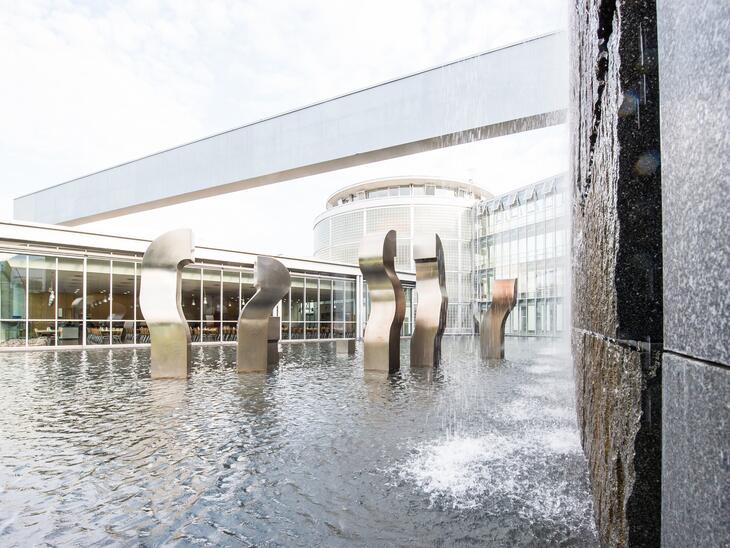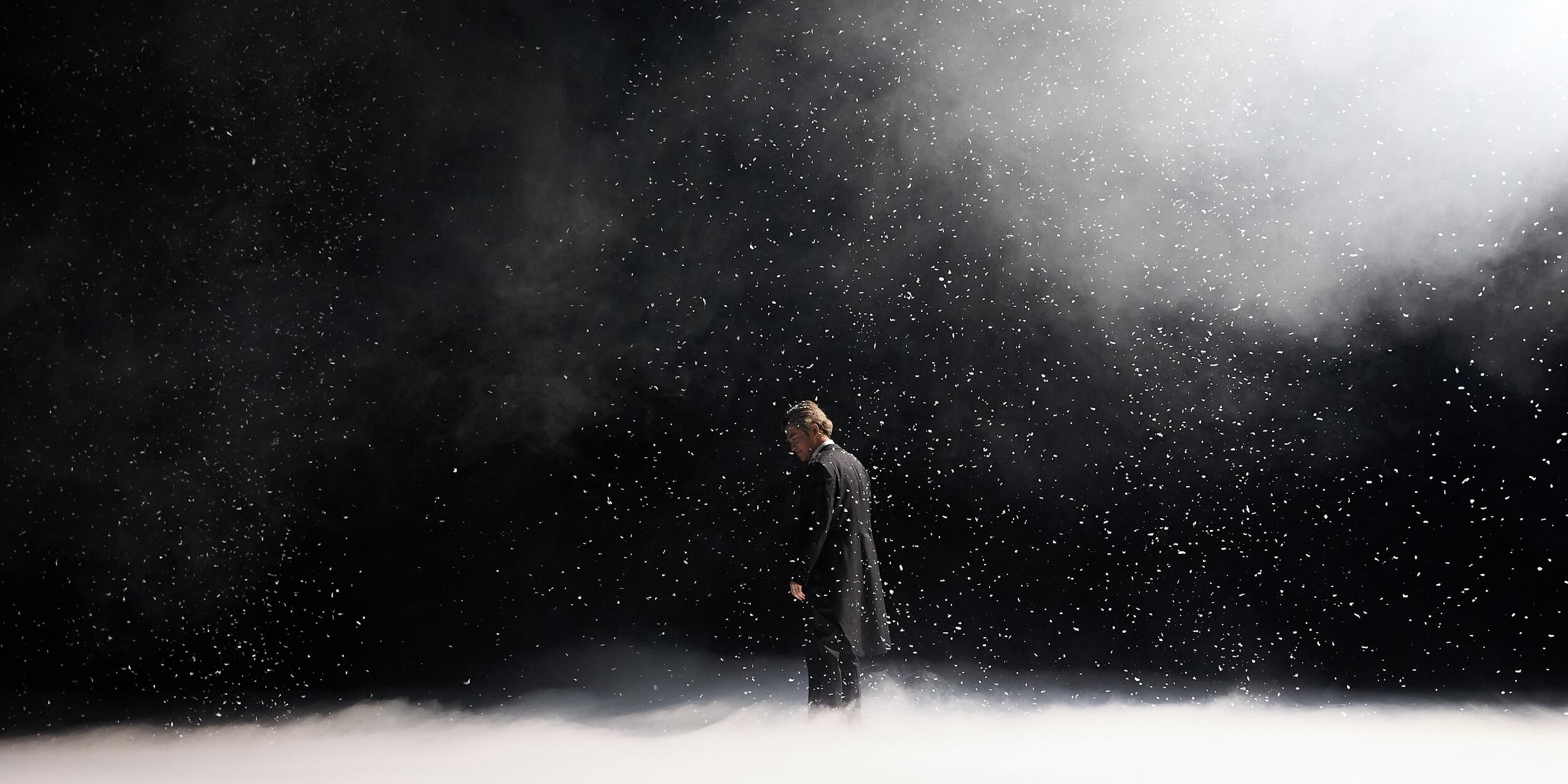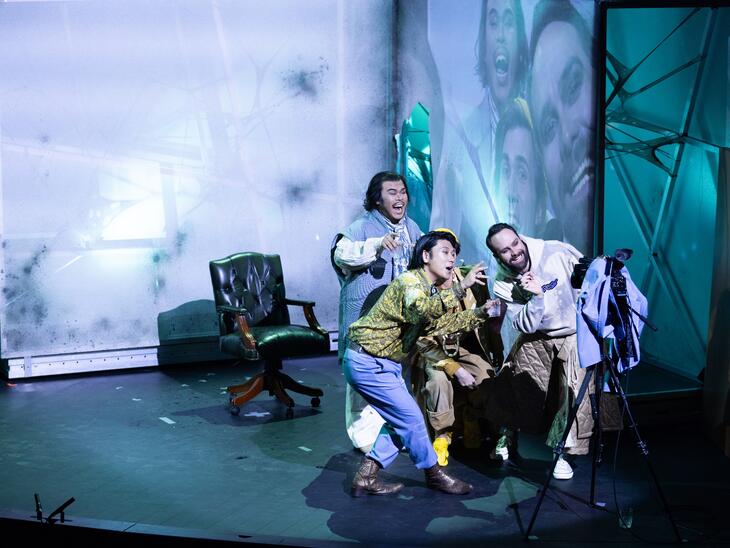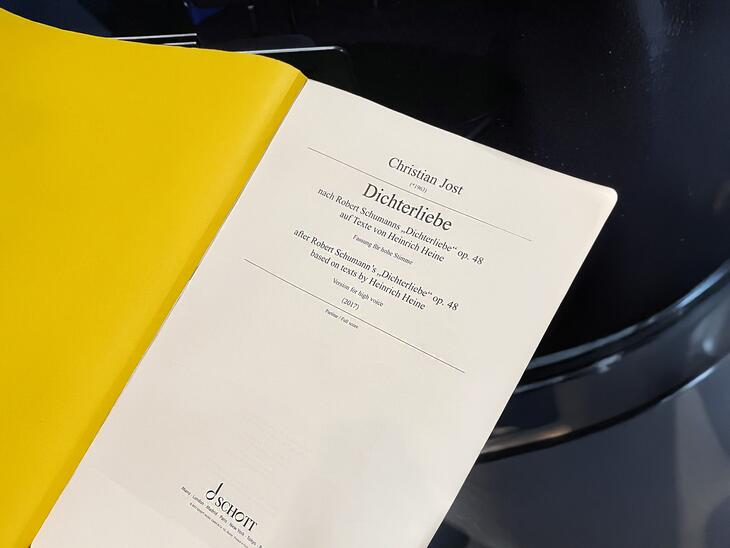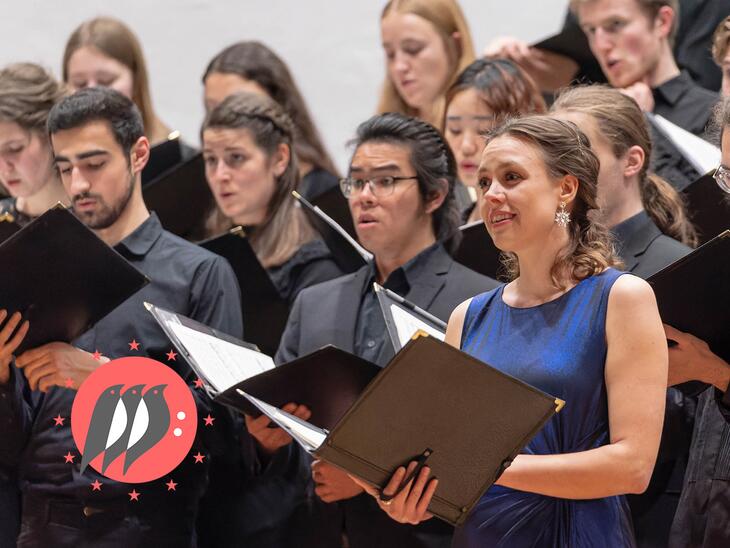Hans Werner Henze worked with important writers such as Ingeborg Bachmann, was friends with Visconti and Klaus Kinski played the leading role in his dance poem "The Idiot" based on Dostoyevsky. For post-war West Germany, he was something like Britten in England after the Second World War. Henze's works also had a high reputation early on; he was performed by Herbert von Karajan and the Berlin Philharmonic Orchestra. Henze, like Britten, could compose marvellously for the voice ...
The Elegy suits our ensemble very well in terms of vocal technique. Henze is one of the most important composers of the post-war period and into our millennium. The work was written in collaboration with W. H. Auden, a lyricist, writer and librettist of world renown. The creators' ambition was no less than to see themselves as successors to such artistic teams as Mozart-Da Ponte and Strauss-Hofmannsthal. The latter, to whom the work is dedicated, also appears as one of the writer rivals of the (fictitious) "Gregor Mittenhofer", around whom everything in the elegy revolves.
However, in his radio review of Elegy at the Theater an der Wien (BR from 3 May 2017), Bernhard Neuhoff finds the "beguilingly colourful magic of the music", but criticises the "dusty" libretto and therefore assumes that the piece has the aura of an "excavation" rather than a "masterpiece".
I was amazed that during the first discussions and readings with the students, there was no scepticism or aversion to the ostensibly "old-fashioned" libretto, quite the opposite: everyone was fascinated by it and curious about an abysmally dark story.
Is such a "poet prince" still conceivable today? Who retreats to a remote mountain inn with his mistress, a "personal physician" and his patroness, who also acts as his secretary, to eavesdrop on the words of a widow driven mad by grief, who has been waiting forty years for the return of her missing bridegroom?
On the one hand, the authors tell an artist's drama: the artist's agony in the struggle to create a "work for eternity". The crisis of creation. Is it still possible to wrest a sculpture from the stone after Michelangelo? The mountain range of masterpieces from the present and past is almost immeasurable, can be overwhelming and devastating; every artist knows this - whether musician, sculptor, painter, writer or actor. You have to prove yourself again and again. The competition never sleeps, and public opinion is merciless: artists and their works are either praised to the skies or destroyed by the critics.
This can "poison" people. This pressure of the artist, the despair in the face of insufficiency, the fear of failure, is the doorway for the dishonest: Here is where evil can arise, here is the opportunity for a handshake with the devil.
Gregor Mittenhofer, the protagonist, also seems to have made a pact. He wants to be better than the others. The insane widow in the mountain inn seems to be something of a guarantee of success for him. Her speech has provided him with "the best literature" for many years. Mittenhofer seeks out the demons. And he goes even further, becoming a murderer - in an almost elegant way - out of jealousy and in order to create a literary jewel from the murder pit of his heart.
But you can also simply leave aside this Faust problem - Thomas Mann is not entirely far removed from the whole thing - and say: this is about a burn-out problem. It can affect any of us.
We went to the cinema with the whole ensemble to see the award-winning, truly stirring film "Anatomy of a Case" with the fascinating Sandra Hüller. Another writer's drama, also set in the Alps, where life and literature intermingle in an uneasy way, and here too there seems to be a murder case. Daniel Moersener summarised the film in Die Zeit as follows: "Creating a significant work of art is basically like committing a crime and getting away with it".
The "Anatomy of a Case" is set in the present, the writing tool is the Macbook. How contemporary is the staging of the elegy? We're sticking with fountain pens and typewriters, but we're moving a little away from the time around 1905 originally envisaged in the libretto and into the 1930s and 1940s. I believe that this unspeakable, terrible era in Germany, Austria and Europe strikes a chord in the play and reflects the atmosphere that consciously or unconsciously drove the authors to write it.
How do the reading and interpretation of a work develop? Is there an artistic technique for this? Any research into a new work that I deal with begins with asking questions. For me, this is the starting point for any artistic interpretation. Federico Fellini uses the image of a murder case to develop his screenplay: a murder has taken place - and nobody knows why. Heiner Müller has Oedipus say in his Oedipus commentary: "He threw his questions into the dark like nets." I do the same. I ask into the darkness of uncertainty. I only enter the rehearsal process with speculations. I question the text and the music, again and again, with new and different questions. This gives rise to a dialogue with the performer and the conductor, in our case my musical partner Gernot Sahler. This is where the play comes from.
